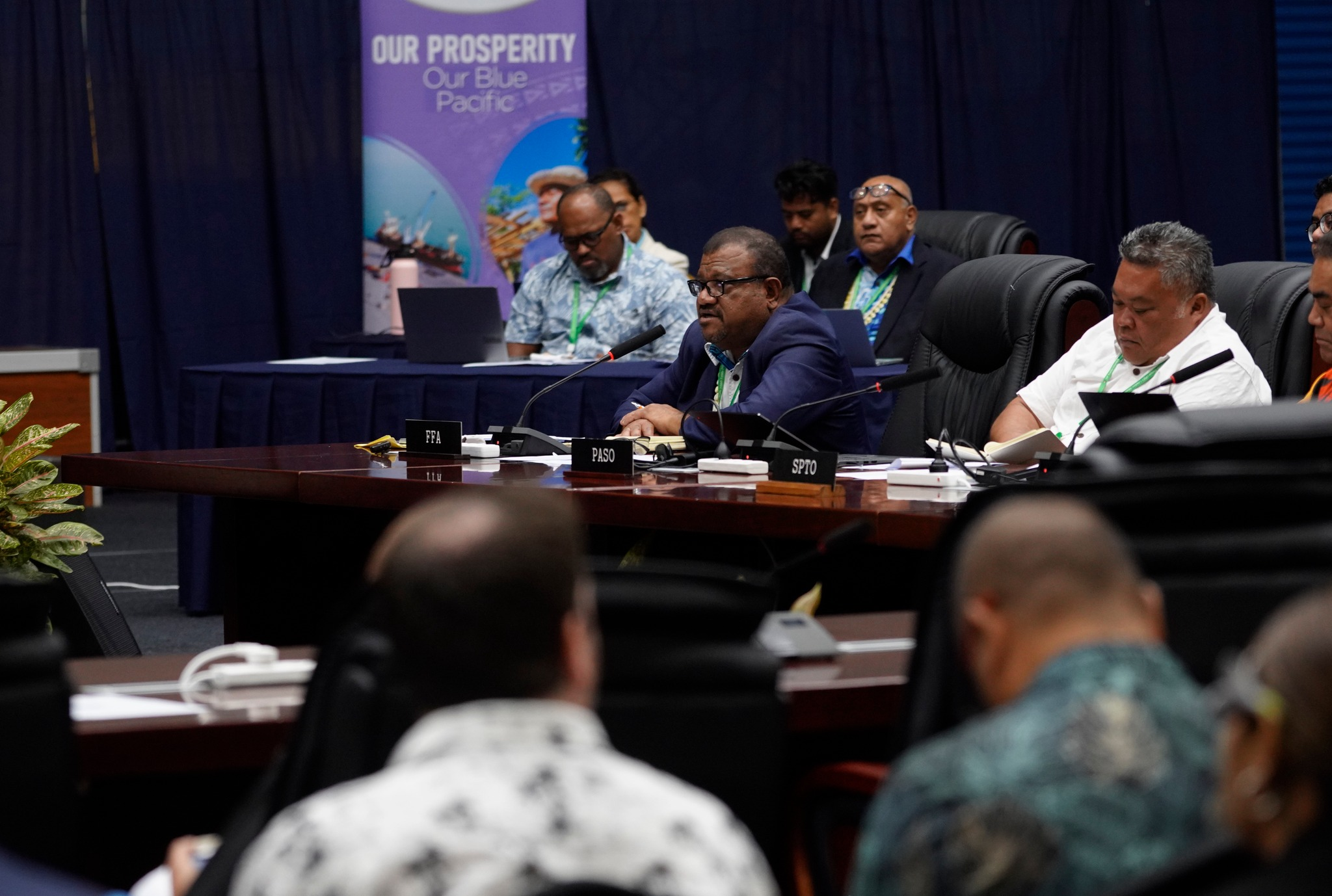
The Pacific remains the only region in the world where all four major tuna stocks – skipjack, yellowfin, bigeye, and albacore – are biologically healthy.
Regional leaders attending the 54th Pacific Islands Forum Leaders summit this week in Solomon Islands heard this from Noan David Pakop, Director-General of Honiara-based Pacific Islands Forum Fisheries Agency (FFA).
Addressing Pacific leaders, Pakop outlined the region’s achievements in fisheries cooperation and development, while calling for continued vigilance against ongoing challenges.
He also highlighted the strategic importance of fisheries and the collective role of Monitoring, Control and Surveillance (MCS) in safeguarding the Pacific’s tuna resources.
The FFA chief said the region’s healthy tuna stock was a result of the united effort in tackling Illegal, Unreported, and Unregulated (IUU) fishing, with losses reduced from US$152 million in 2016 to US$43 million in 2021.
He urged Leaders to extend MCS frameworks to the high seas, strengthen investment in technology and data sharing, as well as coordinated enforcement – and integrate fisheries surveillance into broader regional security frameworks.
“By resourcing our joint surveillance and staying united, we will ensure that our Blue Pacific fisheries continue to underpin resilience, security, and sustainable development for generations to come,” Pakop said.
In his second presentation under People Centred Development and Resource and Economic Development, Pakop shared a video showcasing the tangible economic and social impacts of tuna fisheries.
He reported that Member fleets now capture 61 percent of the catch value within Pacific waters, compared with 38 percent a decade ago.
Regional tuna processing has nearly doubled since 2015, reaching 286,000 metric tonnes.
More than 26,000 Pacific Islanders are employed in the region’s tuna industries, a 19 percent increase since 2015, while government revenues from licensing and access fees remain strong at around US$500 million annually – funding vital services such as education and health.
Pakop highlighted several key developments that reflect the strength of Pacific-driven solutions:
- The endorsement of the East New Britain Initiative (ENBi), opening new opportunities for investment and value-adding in the tuna sector.
- Agreement on a proportional allocation framework for South Pacific albacore, a milestone reached after nearly two decades of discussions, setting the stage for a unified regional position at the upcoming Western and Central Pacific Fisheries Commission (WCPFC) meeting.
- Continued progress under the US Treaty on Fisheries. The new arrangement secures US$60 million annually for 10 years, nearly tripling the previous level of economic assistance. He confirmed that the delayed 2024 payment has now been received by the FFA Secretariat and distributed, paving the way for the 2025 contribution.
- The adoption of the Ocean Literacy Initiative by Fisheries Ministers at the 24th Forum Fisheries Committee ministerial meeting in Niue in July, integrates Pacific traditional knowledge into national education systems, to strengthen cultural and environmental understanding for future generations.
While celebrating progress, Pakop also reminded Leaders of the pressing challenges facing the region, including climate change, shifting tuna distribution, economic pressures, and continuing IUU fishing activities.
“The progress we have made tells us one thing – working together makes us stronger.
“As we look to the future, the FFA remains committed to ensuring our tuna legacy benefits Pacific people first and foremost.
“Let us continue to work together, innovate together, and lead the world in sustainable fisheries management – for our people, our ocean, and our future… Iumi Tugeda, as one Blue Pacific.”
